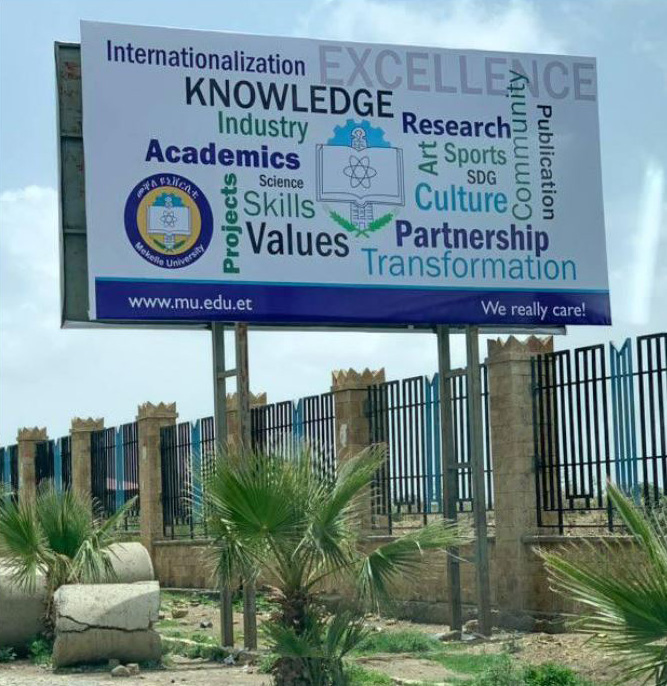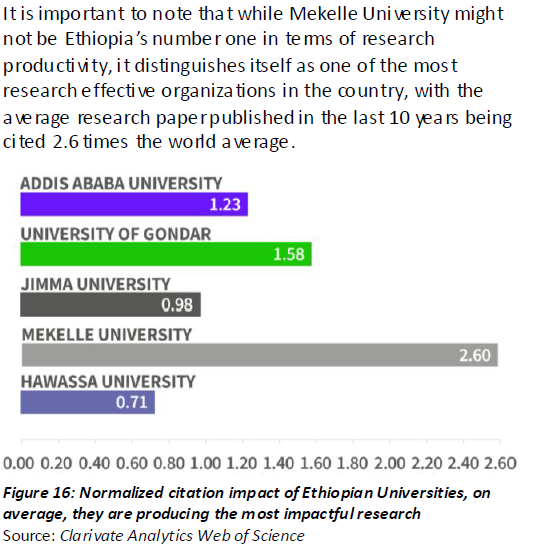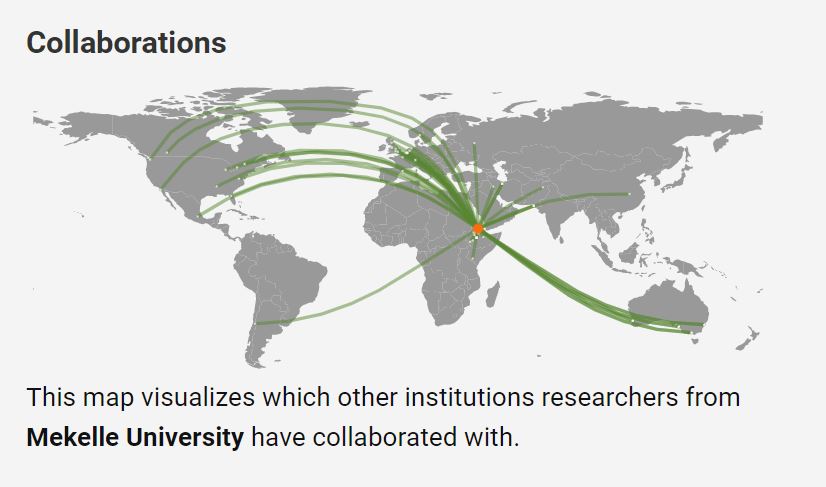
The world should know the story of Mekelle University which in many ways mimics the story of the people of Tigray. Her faculty and staff living without salary for 7 months and at constant risk of attack they still show a heroic commitment to continuing their long standing dedication to improving life in Tigray and beyond. The recent publication, The impact of war on the health system of the Tigray region in Ethiopia: an assessment, in Lancet is a comprehensive landmark of public health research from ongoing collaboration of international universities and Mekelle University.
Despite war and crippling deprivation dedicated faculty and staff at Mekelle University have continued to perform essential research vital to the continued survival and their future rehabilitation. Tigray has suffered catastrophic and complex threats to civilian life for more than 7 million inhabitants including agricultural disruption, food scarcity, no health services, destruction of the electrical supply, no transportation, no phone service, and almost a complete blockade.
Mekelle University had 7,500 faculty and over 2000 staff at the beginning of the Ethiopian Tigray conflict in November 2020. The Ethiopian Ministries of Science and Higher Education which also is responsible for Ayder Hospital which is a part of MU and Tigray’s tertiary referral center, as well as Health removed Tigray and Mekelle University from all budgeting.
The first universities of Ethiopia were founded in the 1950s in the central parts of Ethiopia in Addis Ababa, Jimma, and Gondar. Historically the Tigray were discouraged from going beyond high school during the times of the monarchy and Derg regimes. A survey in the 1960s showed only 10% literacy in Tigray. Those few fortunate ones who did attend university outside Tigray and went on to become part of the contemporary leadership of Tigray were determined to create a university dedicated to education and research to improve the life of Tigray and beyond.
Mekelle University was founded in 2000. In its twenty-two year history it had grown to have 35,000 students in seven colleges, eight institutes, and more than 90 undergraduate and 70 postgraduate programs. Recent years saw the addition of scores of PhD and post-graduate medical specialty training programs.
In the book, Universities and Sustainable Development Future, written by Peter Kohen and Juha Uitto, they compared Mekelle University with other universities in developing countries. Whereas many “become diploma mills” they found that the teaching at Mekelle University was to create a research culture whose findings were applied to and improved the local community.

Clarivate Analytics, reviewed citations of Mekelle University compared with other Ethiopian universities and found that research findings from MU where cited more than twice as often as most research findings. Even though the volume of research published was less then Addis Ababa University it had twice the impact of other universities.

Mekelle University is on record to have more collaborations with international research entities then any other university in Ethiopia. Interestingly, the Science and Higher Education Ministry of Ethiopia gave Mekelle University in 2020 the highest designation in naming it a “research university”. Now it has abandoned it.

